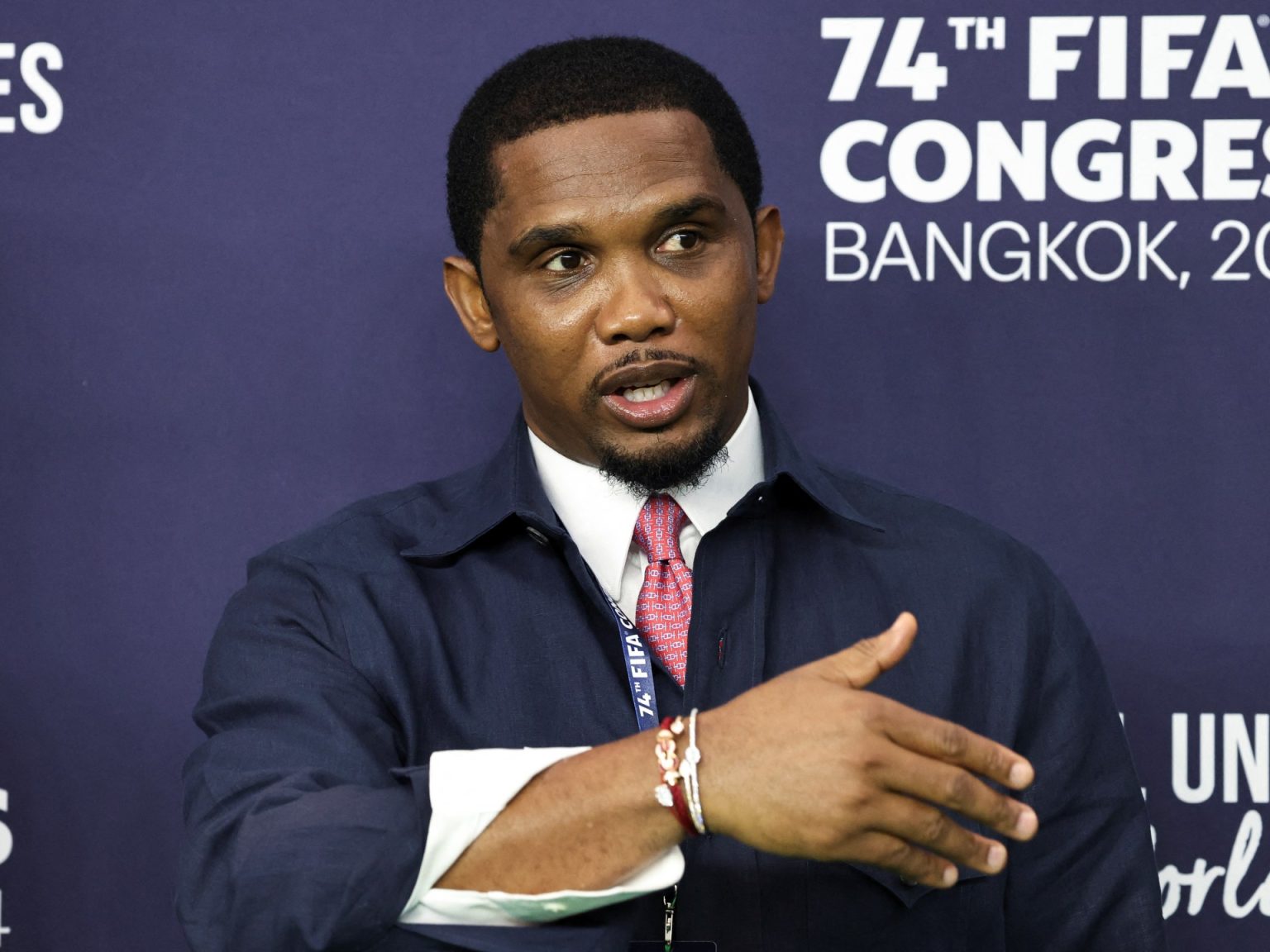Cameroon’s football chief, Samuel Eto’o, has been banned from attending his national team’s matches for six months due to his ‘offensive behaviour’ at a Women’s Under-20 World Cup match. Eto’o, who has been president of the Cameroon Football Federation (Fecafoot) since 2021, violated FIFA’s disciplinary regulations during the match between Brazil and Cameroon in September 2024. Details of the incidents leading to the ban were not disclosed by FIFA’s disciplinary committee, but Eto’o was found guilty of “offensive behaviour and violations of the principles of fair play” and “misconduct” involving officials.
The charges stem from the last-16 game between Cameroon and Brazil, where the South Americans emerged victorious with a 3-1 win after extra time. Eto’o and the Cameroon delegation were unhappy with a penalty decision that led to Brazil’s equaliser in the match. As a result, Eto’o has been suspended from attending any Cameroon matches across various age groups, but his role as Fecafoot president remains unaffected. This ban adds to Eto’o’s recent run-ins with football authorities, as he was fined $200,000 in July for a brand deal with an online gambling firm deemed an ethics violation by the Confederation of African Football.
Eto’o has also been at odds with Cameroon’s sports ministry, particularly regarding the appointment of Belgian Marc Brys as the men’s national team coach earlier this year. Eto’o denounced the appointment as “illegal,” further highlighting the tensions between him and the local sports authorities. Despite these controversies, Eto’o remains a respected figure in Cameroonian football, given his achievements as a player. He is the second most-capped player in Cameroon’s history, behind Rigobert Song, and has won the African Player of the Year award four times. Eto’o also boasts a successful club career, winning the UEFA Champions League four times with three different teams.
This recent ban adds to Eto’o’s history of disciplinary issues, as he was previously involved in an incident during the 2022 FIFA World Cup in Qatar. In a video that circulated online, Eto’o was seen engaging in a physical altercation with a man outside a stadium following a heated exchange. These instances have raised concerns about Eto’o’s conduct and potential impact on the reputation of Cameroon football. The ban from attending matches may raise questions about Eto’o’s leadership at Fecafoot and his ability to maintain relationships with football authorities at both local and international levels.
As Eto’o serves his suspension from attending Cameroon matches, it remains to be seen how this disciplinary action will affect his position within the football community. The fallout from his ‘offensive behaviour’ at the Women’s Under-20 World Cup match adds to the controversies surrounding his tenure as Fecafoot president. Eto’o’s influence in Cameroonian football, both as a former player and current football chief, will likely come under scrutiny in light of these disciplinary issues. Moving forward, Eto’o may need to address his conduct and relationships within the football world to maintain his standing in the sport.













